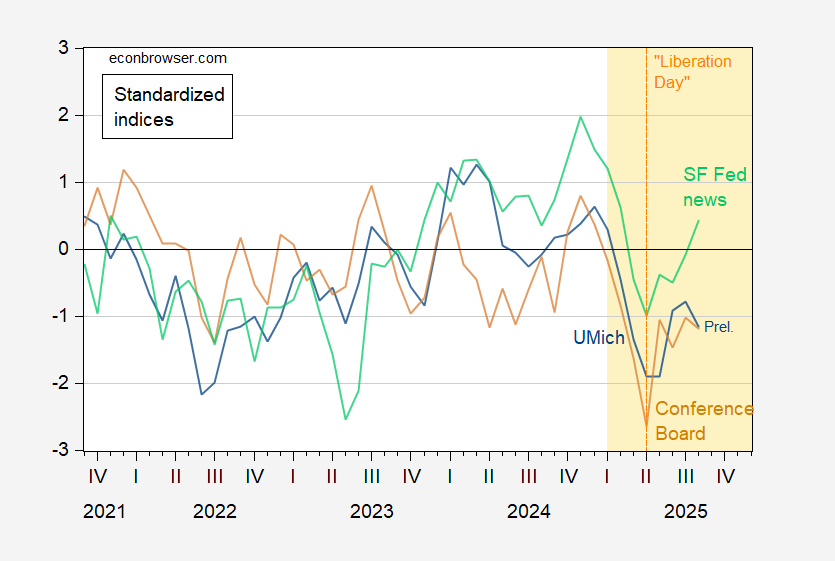
Yves here. Trump’s efforts to bring the Fed to heel has escalated into a market-roiling battle royale with his “firing” of Fed governor Lisa Cook. As some watchful Twitterati point out:
Dear journalists:
The President has not fired Lisa Cook. The President is *trying* to illegally fire her.
Your words shape people’s reality. Please be accurate in your reporting.
— Alvaro Bedoya (@BedoyaUSA) August 26, 2025
As readers likely know by now, Cook is filing suit to contest Trump’s effort to oust her.
Georgetown law professor, mortage/banking expert and sometimes running buddy (back in the foreclosure fraud days) Adam Levitin has weighed in on the validity of Trump’s removal scheme. Levitin starts with arguments that will likely be voiced in the mainstream media by other legal mavens, that even if Trump’s unproven allegations were true, they do not amount to “cause”. But Levitin makes additional arguments based on the accusations of fraud impropriety. He carefully parses what her representations on the relevant instruments would have amounted to, and in particular, that most observers are confusing “primary residence” with “principal residence” in that a borrower can have only one “primary residence” but can have multiple “principle” residences.
By Adam Levitin, Professor of Law, Georgetown University. Originally published at Credit Slips
President Trump fired Federal Reserve Board Governor Lisa Cook tonight based on unproven allegations by his politically motivated henchman that Cook engaged in mortgage fraud. The President’s actions are illegal. He currently has no legal basis to fire Cook. Instead, he disregarded even a modicum of due process in order to achieve a political goal.
It is clear that the President can remove a Federal Reserve Board Governor “for cause.” Unlike some other federal statutes, “cause” is not articulated in the Federal Reserve Act, but presumably it falls within the ambit of “inefficiency, neglect of duty, or malfeasance” or the like. Whether engaging in mortgage fraud would falls into the scope of “cause” is doubtful, as it is unrelated to the execution of Cook’s office. It’s really no different than conviction for assault and battery arising from a bar brawl. At most, one might claim that the fraud indicates a lack of integrity or some general moral turpitude, but that isn’t what “for cause” removal is about. Just because someone is a rotten human being does not create legal grounds for removal.But even if mortgage fraud were actually an adequate basis for “for cause” removal, Trump has no basis for concluding that Cook actually engaged in mortgage fraud. The only thing the President has to go on is the evidence adduced in FHFA Director Bill Pulte’s criminal referral letter. That evidence would not, standing alone, be grounds for a prosecution.
The only evidence Pulte presents is that (1) Cook took out mortgages on two properties within a couple of weeks, (2) the security instrument for each contains a covenant stating that she intended it to be her “principal residence” for one year hence, and (3) one property was briefly listed by someone as being available to rent. None of that evidence is sufficient proof of mortgage fraud.
Let’s consider the statutes that Pulte referenced in his referral. First, he referenced 18 U.S.C. § 1014, which criminalizes false statements in loan applications. The covenants in the security instruments are not “statements.” They are promises, not representations of current fact, so they cannot be false. A misrepresentation about intended occupancy on the Uniform Residential Mortgage Application could trigger 18 U.S.C. § 1014, but the representation there, that property will be the borrower’s “primary residence,” is very narrow given that no duration is specified. That vagueness cuts against a criminal prosecution.
Second, Pulte referenced 18 U.S.C. § 1344, which criminalizes “knowingly” defrauding a financial institution or obtaining credit “by means of false or fraudulent pretenses, representations, or promises.” That provision could encompass the promises made in the security instrument about the property serving as the borrower’s “principal residence,” but it is far from clear that Cook knowingly made the promise or that it was in fact false.
Most borrowers do not read their security instruments, so it is entirely possible that Cook had no idea what she was promising beyond that she would pay the mortgage note when installments came due. While contract law readily tags consumers with constructive knowledge of the terms and conditions of their prolix form contracts, criminal law doesn’t work like that.
Moreover, even if Cook did know that she was promising to have both properties be her “principal residence,” it isn’t clear that she was making a false promise. The term “principal residence” is not a defined in the security instruments, but it is not the same phrasing as “primary residence” (as used in the UMRA). “Principal” is more capacious than “primary,” and is capable of covering multiple residences. Imagine someone who has an co-op in NYC, a house in the New York suburbs, and a condo in Florida and splits time among all three depending on seasons and days of the week, spending roughly a third of the year at each. That person might very well consider himself to have more than one principal residence. (Pulte also referenced the wire fraud and mail fraud statutes, but those are lard-one statutes that require an underlying predicate fraud, which takes us back to the two statutes already discussed.)
The key thing here is that Trump’s only basis for action is Pulte’s referral letter, and that is not an adequate basis for concluding that Cook actually engaged in any wrong doing. Neither Pulte nor Trump have no idea whether Cook knowingly made the occupancy promise or what she interpreted the promise to mean.
We have a system in which people are innocent until proven guilty, and there is not even a prima facie case of fraud here, only a scant bit of evidence that is consistent with fraud. What’s more, that evidence is basically fruit of the poisonous tree, the result of a politically motivated fishing expedition by Pulte. To my knowledge the FHFA has never previously directed the GSEs to produce the loan files for specific individual borrowers, much less without any prior cause for concern about those borrowers. Instead, it seems that Pulte gave the GSEs a hit list of folks whose mortgages files he wanted to review because of their politics. (The fact that he’s only found three targets says a lot about how his fishing expedition is going.) Yet the President is all to happy to use the inadequate result of his toady’s dirty work to advance his own goal of taking control of the Fed. Whatever “for cause” dismissal means, the President cannot be the sole arbiter of “cause” or else the restriction is meaningless. And if it is to have any meaning, the President would have to, at the very least, give the official in question an opportunity to be heard.
But that’s not what happened. Instead, we have a President disregarding due process in order to achieve a political goal. That’s not how America is supposed to work.

